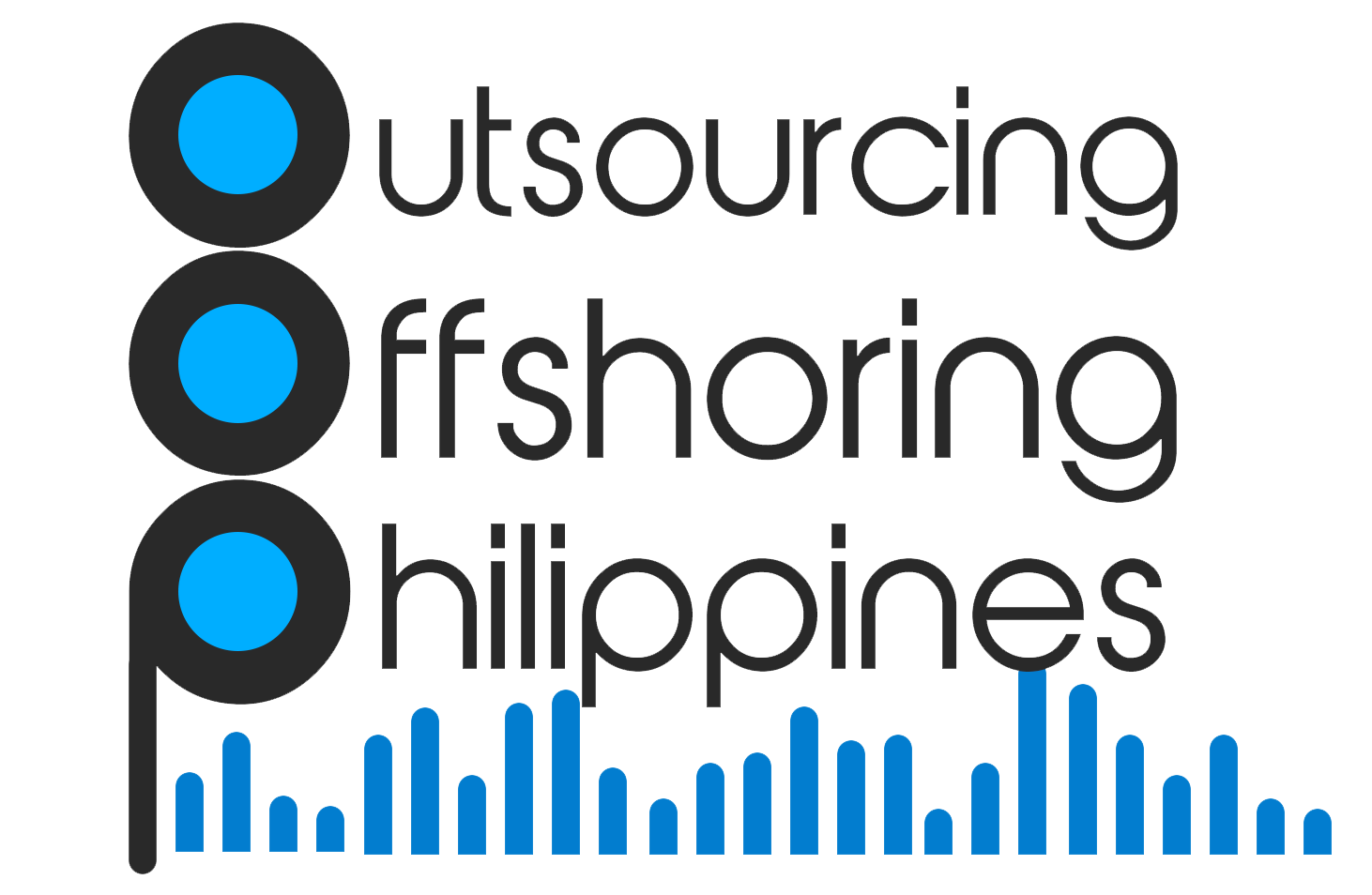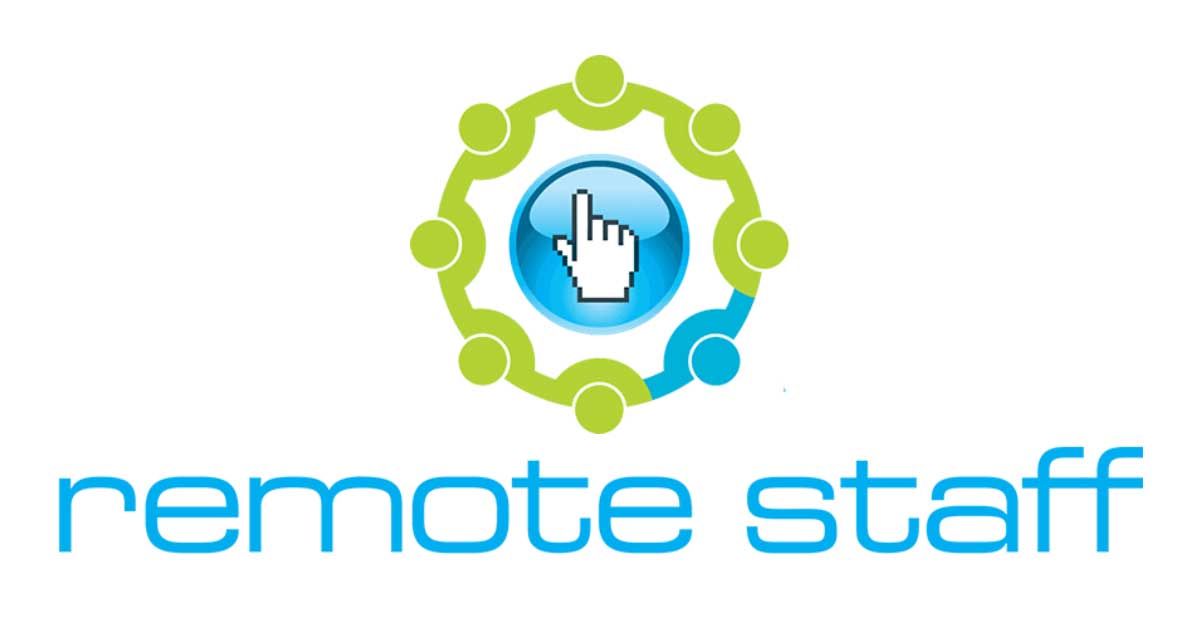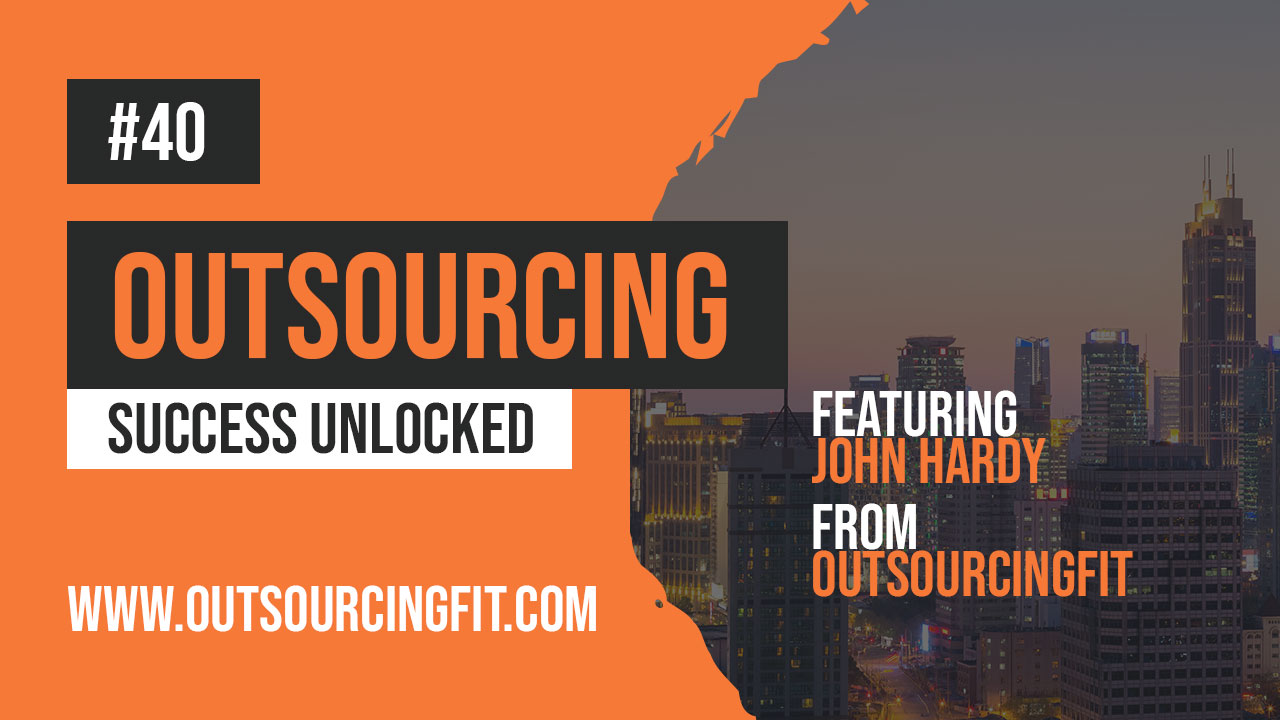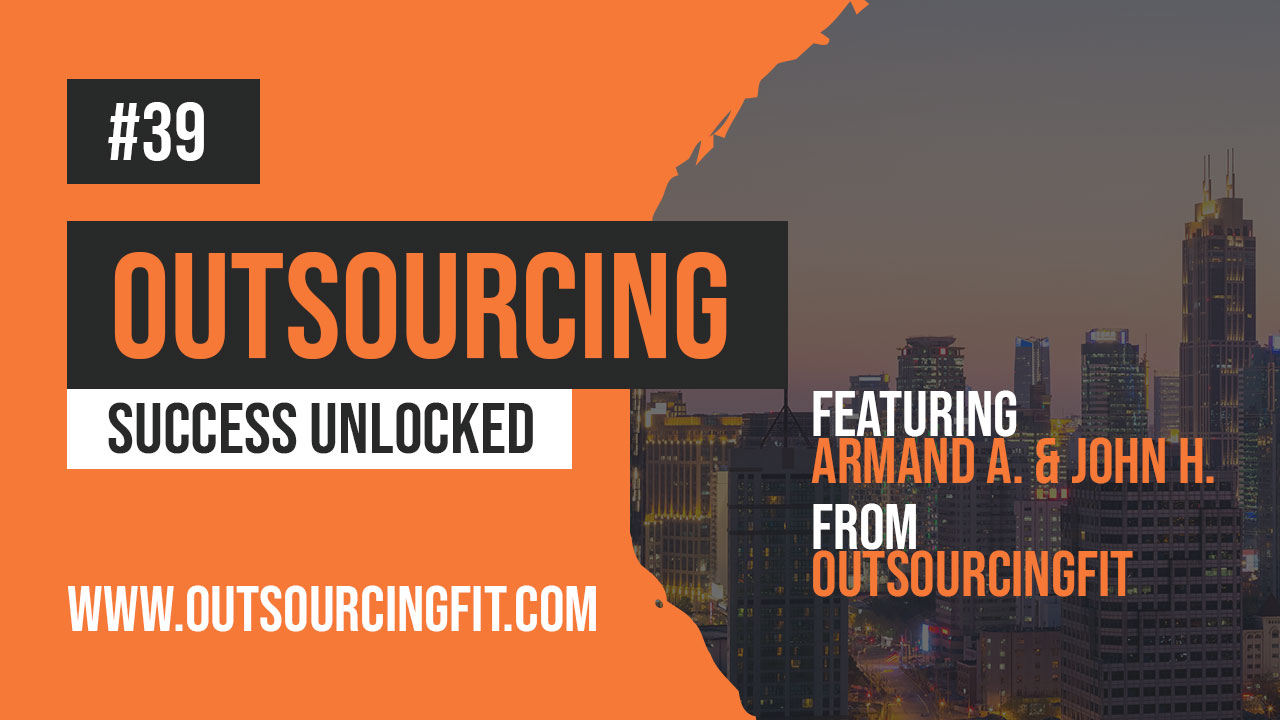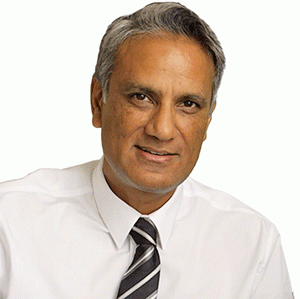 Lance Harvie joins us to talk about Remote Staff and its staffing solutions in the Philippines. Remote Staff helps businesses that are based in Australia, UK, US and New Zealand to hire top quality staff from the Philippines and provide full range support services, including HR, IT, Compliance, and Payroll. Lance also talks about why Founder Chris Jankulovski chose the Philippines to build and grow Remote Staff.
Lance Harvie joins us to talk about Remote Staff and its staffing solutions in the Philippines. Remote Staff helps businesses that are based in Australia, UK, US and New Zealand to hire top quality staff from the Philippines and provide full range support services, including HR, IT, Compliance, and Payroll. Lance also talks about why Founder Chris Jankulovski chose the Philippines to build and grow Remote Staff.
Transcript of the Interview
Henry Acosta: Hi, this is the Outsourcing and Offshoring Philippines podcast and our guest for today is the CEO of Remote Staff Philippines, his name is Lance Harvie. We’re so glad to have you join us today.
Lance Harvie: Thank you very much Henry, thanks for having me on the on the call. But just one little correction there, I’m not the founder, I’m the CEO. The founder is a guy called Chris Jankulovski so he’s quite actively, he’s the Chairman now, but he’s still actively involved in the business but I pretty much run day-to-day operations and we collaborate on a regular basis. He flies into Manila once every month, so yeah so day-to-day operations is run by myself.
Henry: Sounds great and welcome to the show. To start things off, I just wanted to ask can you give us a little bit more background about yourself and tell us about what you guys do at Remote Staff?
Lance: Okay, great. So my background is way way back engineering background in electronics and software development. But I moved into the recruitment space back in 97 in Australia. So I was brought up in the UK, moved to Australia in 91, had an engineering career and then moved into recruiting. So I’ve been the recruitment game for a long time in Australia and around the world and I had my own firm in Sydney so I lived there. And then now, I’m actively involved in Remote Staff, I’m running the show here. So yeah that’s kind of me really. I mean what we do Remote Staff is we provide Filipino professionals that work from either home or from our office here in Makati in all sorts of areas. Primarily anything that can be done over the internet, anything that can be done behind a computer from bookkeeping, accounting, web development, design, and data entry, CAD work, anything which can be done with a computer and can be delivered of the internet, we provide those kinds of professionals. We’re not a BPO per se, we’re more like a contact recruitment agency, so what we do is we provide the resource for the
individual and then they would work directly with our clients like an extension of their workforce as if they were in their office really because we provide tools and transparency around their work, but they get them at a lot cheaper price and also there’s a bigger pool for them to access because as you know the Philippines has got a lot of graduates, a lot of professionals so. But these are the advantages that we provide our clients and majority of our clients in Australia at 80 percent, we have clients in the UK, US, and New Zealand.
Henry: That covered a lot of things that I was going to ask you but that’s alright, it’s fine. I just wanted to ask, can you tell us a little bit more about Remote Staff? Why did you guys end up choosing the Philippines versus other countries that can provide the same services?
Lance: Sure, good question. Well yeah like most things in life, sometimes they just start by accident. And so the founder Chris Jankulovski, he came out to the Philippines, he was working for a company in Australia, they were having trouble sourcing enough people, they were growing and so he was sent out to the Philippines to set up a team I guess for this company – it was most in customer support. While he was here this is back in 2006 I think it was, he did that project and then he realized “Oh, there’s an opportunity here.” And I think outsourcing for small businesses was just kicking off. The big boys have been in outsourcing for years, we know about that. They outsource, they send them to mostly to India and then to Mexico and all these places so, but there wasn’t those kind of options for the small to medium sized businesses so Chris thought this is a great opportunity. And so need drives sort of a reason to do something so he set the company up but he focused primarily, he did something quite different, he focused not just providing people from working from an office which most BPOs do, he provided people who can work from home. So Remote Staff is probably the biggest provider of remote staff with staffing really, literally with home-based remote staffing rather than just in an office environment although we do have clients who use staff which are based in an office. So that was the impetus and the company kind of grew from strength to strength, year-on-year and then he moved. He was himself remote for a long time and then he got himself an office here in Makati and then so we be kind of growing ever since. But the need was really to try to provide clients in Australia was struggling to find resource with a solution from the Philippines.
Henry: And around what year, the founder founded Remote Staff?
Lance: He started I think in 2007. It’s funny how things work, serendipity. I was actually
living at the time in the UK and when he was starting, he was trying to promote his business and he was doing it through attending trade shows around the world so he happened to be attending a trade show that I was visiting at the time called Ad:Tech in London and I was living in London at the time or in England. And obviously I was learning about internet marketing, so on and this was prominent exhibition and conferencing in digital marketing and he was there with his little booth, it was him and his wife Rica who is a Filipina and I was just drawn to him and when we kind of in a struck up a conversation and years later that I actually ended up in the Philippines. But that’s kind of how it all kind of works sometimes, but yeah he started his business in around 2007.
Henry: Wow, yeah it seems like you guys have been in the business for a long time and that’s very rare for people who try and start out their own I guess you can say outsourcing firm, but not exactly in your case. So yeah, I’m glad that you guys are here with us today.
Lance: Thank you, we’re happy to be here. Both Chris and I, we’ve kind of fell in love with the Philippines, we fell in love with the Filipinos and I consider myself a Filipino in some respects in the sense that I can relate to the mindset and mind share. And even though I’ve come from the West and I’ve got that sort of Western experience and upbringing, I do embrace the Filipino Culture. And we’ve kind of found that happy medium so we’re very very happy to be part of this country and what it’s got to offer. So yes, I think both me and Chris are very much aligned with providing a service to both ends so it’s not just about servicing our clients but we really are committed to servicing our candidates as well so we want to make sure that we provide the best experience for our for our candidates while working on behalf of our clients – so it’s a two-way street. So yeah, very happy to be offering that service around the world.
Henry: Can you tell us about your staff? I mean, your name is Remote Staff so I’m curious to how you guys find them and when do you hire people who are in office and when do you hire people who work from home?
Lance: Very good question. So we have a team, we have a lot of internal staff we have, five departments. One of our departments is the recruitment department which is manned by recruiters so they sought, they are the sourcers. So we advertise on all of the job boards, jobstreet, Monster, Indeed and so we’ve we also over the years, you can imagine, we’ve collected a lot of resumes so I think our database is over 150,000 candidates so that’s kind of how we, so we’re really out there. We’ve kind of got a lot of exposure to the candidate base, we get referrals, we advertise also on Facebook, we do a lot of social marketing as well, we do a lot of content creation as well. We have a marketing team that do, produces a lot of content so we use Facebook with primarily for candidate acquisition as well as all the other job sites and also our referral system so that gives us a more than enough people to pull off candidates to be able to pick from. So what was the other question, what was the other part of your question I forgot?
Henry: So you answered how you guys find the staff. I was just yeah wondering when do you hire you.
Lance: Oh yeah, who do we hire for office space and who do we hire for a home? Yeah okay, that’s a good question so we give an option to our clients so when they come to us we say to them, because we only have a certain type of offering. We don’t do project-based work so if the client says “Look we need a bulk website developed,” we can’t help them because we are committed to giving regular employment to our candidates and so the only thing we can offer is what we call full time which is 40 hours a week for a long-term assignment or 20 hours a week which is part-time. And the other option we offer is home-based or office based so it really depends on the client so if they are only looking for a part-time and they’re looking for one person we don’t recommend an office space solution because it’s going to cost them. Because with an office based solution, there is a fee that we have to charge to provide them with a desk, with a computer, with internet access and so on because we have running costs to cover. So we try to save the client money and say “Look, the person can work just as well from home.” But if you were wanting to scale your team, let’s say you are looking to maybe outsource a small part of your team, let’s say you want to build to 5, 10, 15, 20 then perhaps an office solution would be a better a better way to go. So it really depends on the client’s needs that they’d either be office based or home based. In some cases when they’re sensitive data involved or they might just want to go office base or if they need additional supervision, we can also offer an office base solution but one thing that we don’t do and this is why we’re different from BPO perhaps is we don’t co-manage the staff. We only provide HR services to to bridge the cultural differences and make sure that the communication is flowing well between the two – the client and the contractor – and also make sure the payments are all done. And we provide a lot of tools which we’ve built in-house to allow the client to figure out what the what the person is doing in the way of screen shots and we have a compliance team that monitors attendance and all these sorts of things. So we give a lot of transparency to our clients to be able to see what people are doing but we don’t advocate micromanagement, we advocate trying to build trust but there’s always some sort of data around that so if there’s an issue, they can always reference the data.
Henry: On the topic of your clients, you mentioned a while ago that they’re mostly from Australia. Can you tell us about what kind of clients you guys usually get or where do you get them?
Lance: Yeah, good question. So we leverage digital marketing primarily as our as a way to reach out to the market, we are shifting that approach. Recently we were going to be going, we using different methods to reach out to the audience, to the market. But the type of clients that we get, so their business is varied like so there could be small businesses, it could be just one man bands, people have just independent freelancers, whatever or it could be a small business that’s got five staff, ten staff, fifteen staff all the way up to a hundred staff. We don’t necessarily work with really large companies because they tend to work with more the BPO standard set up, they need more compliance and so on. So really and also we’re a little bit of an incubator so let’s say there’s a starter we do a lot of what we start ups, so they want to save their cash or they want to save money. So they come to us and say “Look, we’re kicking off here. We can definitely scale, we want your help.” So we would then get to them in their office and then we will scale them. We’ve done that with what a number of companies, we got them up to about 50 people then they’ve gone and incorporated their own company in the Philippines and they’ve moved their staff to their own their set up. So the kind of clients vary from somebody who’s going to hire one person all the way to people who are going to hire 50, 20 hundred people sometimes. We’ve had clients who have 500 people working. We’re on the small end of the under the scale, like I said we are not a BPO that kind of can say “Okay we can give you thousands” because we won’t be able to service that number of people. We’re just not set up for that.
Henry: Yeah, but I mean hundreds of employees for one client, that’s pretty incredible, that’s a big size.
Lance: That is and you can imagine it’s all about, it’s really an operational problem. You don’t want to work down your quality because as you scale, because if we take on huge amounts of work, unfortunately we can’t put people, you know what it’s like, you might have a really good person and say “Okay I just needed someone exactly the same as that.” That may or may not happen because they’re not going to be the same. And that’s the same thing, I’m very careful to not to over promise. I always under promise and over deliver because it’s really about the quality and we really want to have our clients for the long run, therefore, we’ve really got to deliver to the promise and the only way we can do that is to be very careful in our filtering, our qualifying process and making sure that we have all of the, because this basically what happens the cry will get a compliance team that will make sure that the contractor is doing what they’re doing. But they also get an account manager which is going to be with them for the duration of their journey with us so the old reason behind that is that we provide a lot of support after the hire because hiring is one thing but then the real work starts when they onboard them and they start giving them work and so that’s really a difficult thing to get right sometimes. So that’s why it’s very intensive on manpower within our own company so scaling it, you can imagine, would be a big undertaking to keep the quality.
Henry: Good, of course. And well I just wanted to ask about your clients, let’s say you have a new or someone who’s looking into outsourcing or into working with you guys, what can I expect from you guys from the beginning all the way to onboarding already and having my processes or having my business ran with you guys.
Lance: Okay, good question. So we I think we’ve got a very very defined process so the first point of contact is that we will send you a form, a job description form, it’s actually just a typical job description form which identifies key skill sets and experiences that you’re looking for. We were also be asking questions about why is that role, how does it come up, why is there a need for it? So we do a needs analysis primarily with the client, because sometimes clients really may be thinking “Well we need this,” but when you get to go through this journey of figuring out why, they may need somebody totally different – that’s one thing. Secondly, maybe they don’t even need somebody. So we really try to get that flashed out at the beginning because if we don’t get that right, then the rest of it is going to fall over. So we’ve got to be aligned with the real need of the client. So that’s done through a first job spec and our business developers would jump on the phone and have this qualification process with our prospect. And also explained, how we work because it’s important that we set the right expectations. We make sure that they understand that there’s going to be ongoing, there’s going to be this amount of support, they’re going to have access to the portal and all these sorts and how the billing’s going to work and all of those things are explained so that if there are any questions, they can be answered at the out front. And so once that’s all bedded down and the skill sets have been all qualified out, then that job spec is then sent to my recruitment team who would then review that and then start sourcing candidates against that. And then those candidates will get endorsed to the account managers who would then endorse those to the client, set up interviews and then the client will review these people, have a Skype call with them and then if they’re happy with the candidate, then they would sign up an agreement with us and then we get them started. So there’s a two-way contract process, so the candidate will also get a contract to sign with us and then the client would get one and then everybody knows what’s going on. But on the first day and for the first month, the account manager will be checking in very regularly to make sure that everything is running smoothly, that any questions have been answered any misunderstandings and taken care of because that’s a very critical period of the relationship to make it successful long-term. And also we offer the option for the client, if it’s not working out we’ll say “Look pull the plug now, and we’ll get you somebody else.” So we’re really transparent and we’re really upfront about it because if things are not going well at the beginning and you kind of get a feel for it, then we say “Look, it’s better that we kind of, let’s just try again.” And because we want to get it right for the client and in the long run so there’s no real lock-in contract with us but we would like to get that journey to be a long-term journey. And we do that by qualifying the need at the beginning.
Henry: And it sounds like a great process and I’m sure it’s worked for you guys. I mean you guys have been in operation for 11 years.
Lance: Yeah, it’s been working for us. I mean we’ve been growing year-on-year I mean and we’re quite transparent about even our contact numbers, you can find them on our website. I mean Chris’s philosophies always been about transparency so we’re happy to sort of give you whatever you need we want it to be an honest and trustful relationship with all our clients.
Henry: And yeah, so I just wanted to know more about how you guys, well how your relationship is like with your employees so can you tell us a little bit more about that and how you make sure that they’re working on point and they like working with Remote Staff?
Lance: Right. So there is our are contractors that work on behalf with our clients and then there’s our internal staff, so let’s talk about our contractors first. So the contract is really what we encourage is regular communication and we do a lot of kind of I guess a lot of setting of expectations with our new clients to make sure that they understand how Filipinos work, the Filipinos need feedback and they need to constructive feedback, they need to be told and they don’t want to be left alone on their own too long because it they want to know if they’re doing the right thing. So a lot of calibration, it’s a lot of communication so once that relationship is established because you remember it’s a person-to-person situation. So the client is a person, the contractor is a person so once that relationship is in place and they’ve figured out how to work with each other then they just do it. So every kind has their own kind of way of doing that. Some people that tend to be more engaging, some people are less engaging but they kind of figure it out, yeah, and we’re there to help that relationship to be smooth. So on the subcontractor side, we don’t actually get involved in the delivery of the work that’s between the two parties. We’re just simply there to facilitate the HR part of it, the relationship. So if there is an issue then what will happen is if a contractor because the account manager is assigned, they’re assigned two-way, they’re assigned also to the contractors and also to the client. So if they don’t want to talk to each other, if there’s some sort of dispute then the contractor will talk to the account manager because they may feel more comfortable if it’s a sensitive subject and then they would then relay it to the client in repurposes so it’s more easier to take in I guess. So this is where the cultural differences happen and this is how we kind of overcome them by having an account manager as an intermediate. So they tend to work well and then if there’s any and also what the account managers do, there’s a regular what I call a round robin, that the account manager has to even if there’s nothing going on, any issues, the account manager has to check in regularly with the subcontractors to say “Hey, is everything going okay? Is there anything you want help with?” and so on and the same with the client. So there is regular contact between them and our company so we know what’s going on because our job is to make sure that people are not just disgruntled and not sharing that or there’s a problem and so we want to get on top of it, nip it in the bud as soon as possible. The sooner you do it, the sooner things can get resolved. So that’s how we work with the contractors and the clients. Now the internal staff that we have, the way I run it, I run many companies and my approach is very much about transparency and about collaboration. So I encourage a problem-solving, collaborative, zero middle-management, a way to solving problems. So it’s really a solving problems kind of culture. We want to address the problem, I try very hard to minimize internal politics and it’s really about, I say “Let’s just all mess in, we have a problem, it’s a company-wide problem, wherever department has it. Let’s collaborate together and let’ solve this problem.” So it’s that kind of approach that we take to internal management, I have managers that work for me but they’re very much like me where we get our sleeves up and we get in and we help. I’m not a sort of a hands-off kind of a manager, I get in there I and I work hand in hand with the people at the grassroots level and that seems to work really really well and people feel empowered, they feel that they’re learning something, that they’re moving ahead. And so yeah, I mean that’s kind of how I run the internal teams if you like. And obviously we have our social events and so on so we create this kind of a family culture and that’s kind of and seems to work very very well. Our people want to stay with us, they’re empowered, they’re motivated and they feel that they’re that they come to work and it’s a good experience.
Henry: That sounds great and thank you so much for sharing all that and well we’re kind of almost out of time so before we end the interview, can you tell us about for those people who are interested in talking with you Lance and getting in touch with the Remote Staff, can you tell us how they can do that?
Lance: Sure, the best way to get in touch with me directly is they just reach me by email, my email it just [email protected]. Alternately, if you want to know a little bit more about us and our company Remote Staff, you can just google it or just go to www.remotestaff.com.au got you and then also I guess we’re all over the internet as well. So yeah, there’s also reviews about us. We always invite people to come in, talk to us anytime, even if I can’t help someone on their remote staffing journey, if there’s anything else I can have people with then please reach out anytime. I’m happy to have you lend a helping hand.
Henry: Awesome. So for those curious about your offices here in the Philippines, can you tell us where it’s at?
Lance: Yes, our head office is in downtown Makati, we’re in Dela Costa Street, it’s in the building called Trafalgar Plaza. We have the whole floor on the 27th floor so if anybody’s walking around and then happened to be in the vicinity, pop into our office and say ‘hello.’
Henry: Awesome. Yeah, well that’s all the questions for today and we really appreciate the time Lance. I really enjoyed this interview.
Lance: Thanks Henry, it’s been a pleasure to talk to you too and if you are actually around as well buddy, pop in and say ‘hello’ and let’s have a coffee together.
Henry: Alright, no problem. And for those listening, that was the CEO of Remote Staff here in the Philippines and his name is Lance Harvie. We just finished talking about Remote Staff and all the good things that they do for their clients and employees. And if you’d like to know more about the outsourcing industry here in the Philippines, please do visit our website at www.offshoring.com.ph. This is the Outsourcing and Offshoring in the Philippines podcast and I am Henry Acosta, thank you for listening.
